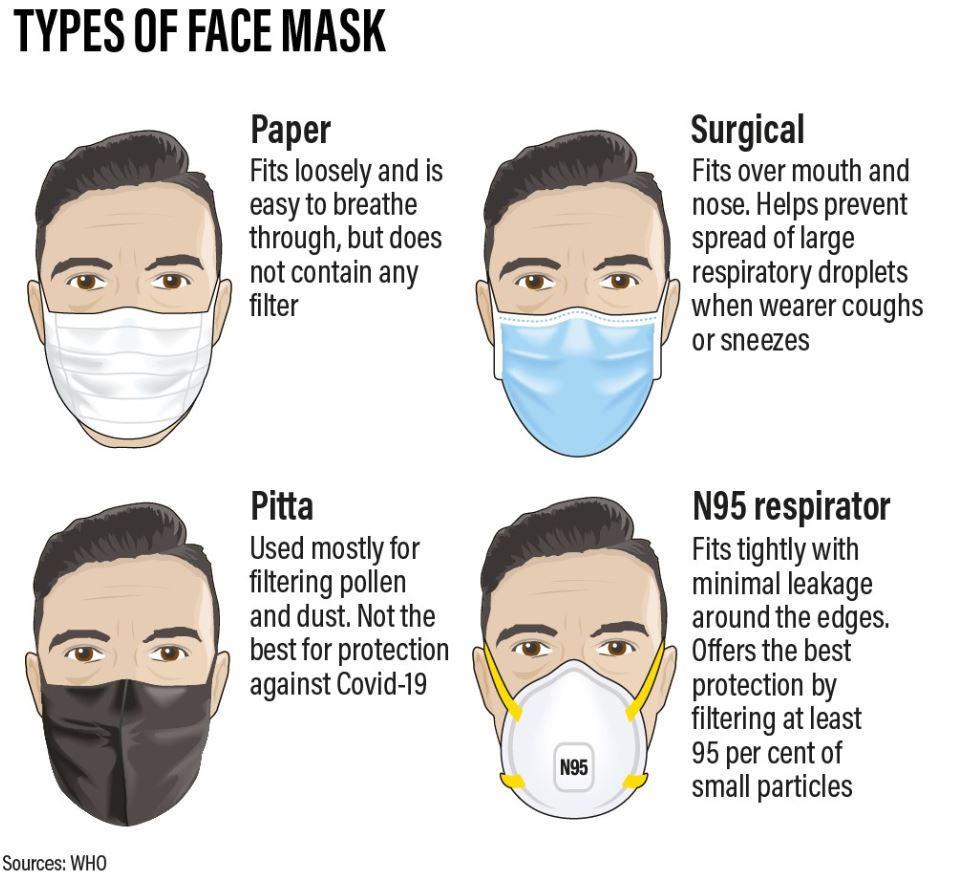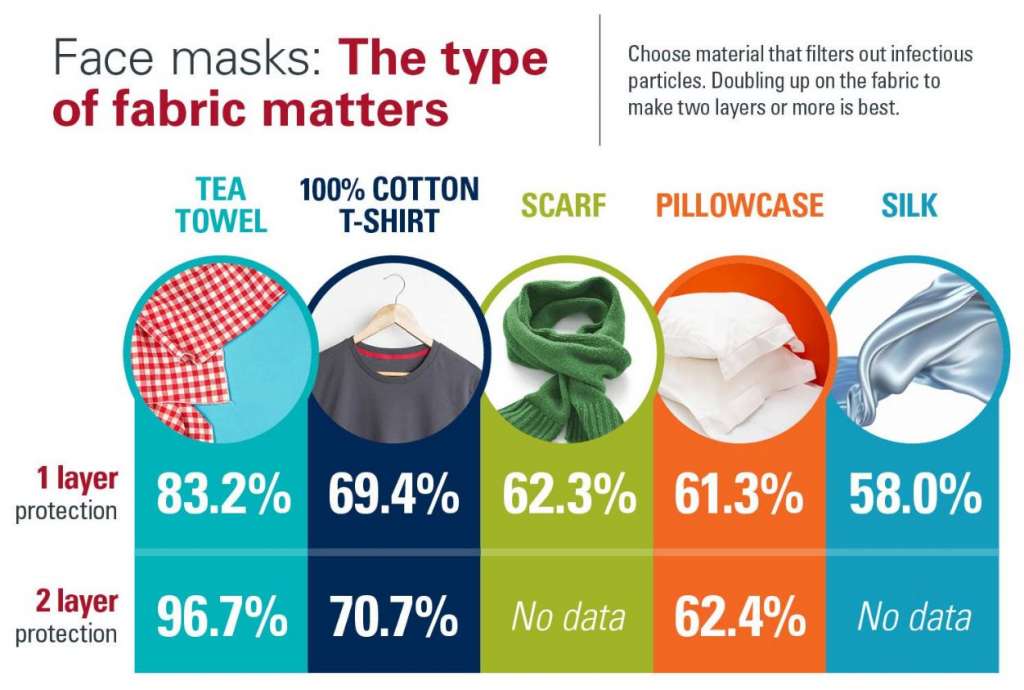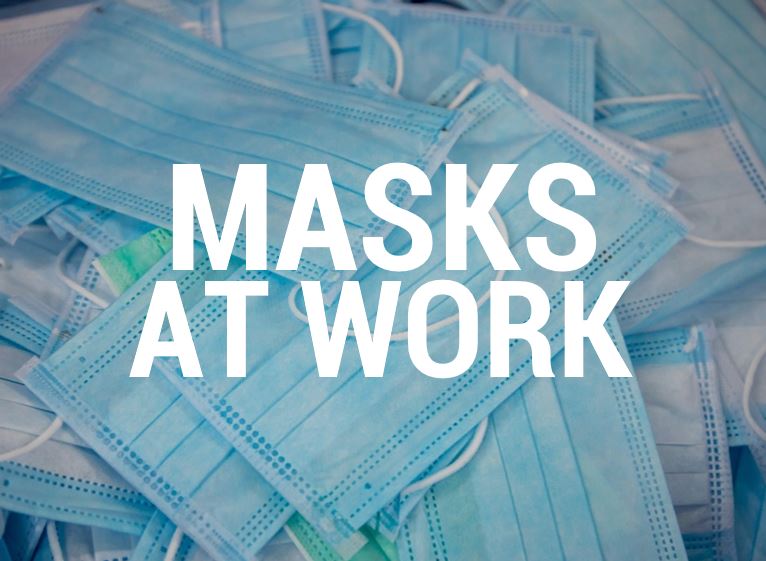Masks will be mandatory in many parts of Ontario as of July 7
Whether you’ve been working at a job site, store or office throughout the pandemic, are continuing to work from home, or are gradually moving to a combination of on-site/off-site work, it’s likely that you’ll be using masks more than you have been.
In Toronto, a bylaw requiring face masks to be work in many public spaces and stores comes into effect on July 7 and regions from London to Ottawa have either announced or are expected to announce similar requirements, to help stop the spread of coronavirus amidst news that new mutations have made the virus more transmissible than it used to be.
Types of masks

Paper masks:
Plain paper masks may stop large droplets if someone sneezes, but they’re generally hard to breathe through, which means they have to fit loosely – and that means they’re not really effective. Not recommended for use against coronavirus, especially indoors.
Surgical masks:
These are the masks you’ll see most often: 2- or 3-ply, disposable thin cloth masks. These are considered effective against coronavirus when used properly, which means ensuring they cover the nose and mouth, and are disposed of after each use. For most people, these masks will be fine for use in the workplace, provided that they’re combined with adequate social distancing (6 feet of space between desks, no more than 2 people in an elevator at a time, etc.).
KN95 masks:
KN95 face masks provide air filtration that is closer to the healthcare-standard N95 masks and can be used for longer periods than surgical masks. However, they are significantly more expensive ($6+/mask) and have, until recently, been difficult to find outside of healthcare. KN95 masks may be a better choice when you can’t reliably maintain social distancing, or are required to deal with large numbers of people during a shift.
N95 masks:
N95 masks have a proven high filtration rate and are certified for use by healthcare professionals, which makes them desirable for everyday work use. However, with shortages of N95s continuing, most health authorities are discouraging the use of N95 masks for anyone who is not working with patients on a daily basis.
Cloth masks:
The extreme mask shortages at the beginning of the pandemic in North America led many people to create their own masks, either by sewing them or by simply tying a piece of cloth around their face. Three months into the lockdowns, we have some field-tested data.

Experts say that homemade cloth masks can be very effective as long as they are made and used properly:
- They fit snugly around the face to prevent large gaps at the side
- They cover the nose and mouth
- Homemade cloth masks of 2 or more layers will be more effective
- Cloth masks should be properly washed and dried after every use
The Province of Ontario has published detailed mask guidelines for getting back to work, which can give you and your employees more confidence as you make the transition.
Don’t hesitate to get in touch
Transitioning back to work in the ‘new normal’ conditions is stressful for everyone – and that’s okay. If you need advice, guidance or just some questions answered about how you and your employees can stay safe, don’t hesitate to get in touch. We’re always happy to help.





